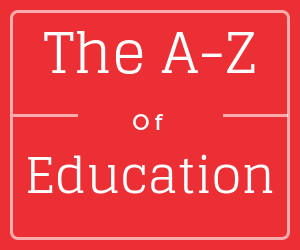Black Boys in Crisis: Crime and Punishment

In this series, appropriately titled “Black Boys in Crisis,” I highlight the problems facing black boys in education today, as well as provide clear steps that will lead us out of the crisis.
Sixty-five percent of US public schools reported at least one violent incident in 2013–2014, according to the National Center for Education Statistics (NCES) in their schools each year, but that number rises to 82 percent for schools where black students make up a majority (Rates of School Crime 2015). The violence is often associated with gang activity. Though Hispanic boys are the most likely to be involved in gangs at school, it is certainly an issue for black boys too: 31 percent of student’s nationwide reporting seeing black gang activity in their schools.
Gangs can wreak havoc in communities, but they should be viewed as a symptom rather than a disease. They represent an effort by the disenfranchised to find social stability; a social arena where the powerless can feel powerful. If you are a young black boy from a broken home, with no positive male role model to look up to, and feel beset on all sides by unjust cops, school administrators, and teachers, a gang looks extremely attractive. It offers structure and camaraderie, and there is often the allure of wealth—however, that is acquired. In other words, gangs offer these boys what the school itself should be offering: structure, companionship, strong leadership, and the chance to break out of poverty.
Plenty of violent and nonviolent crimes are committed by non-black students, but those crimes tend to be underreported. It’s also important to note that reporting standards for school crime may vary from school to school. This isn’t to say that educators and administrators are not telling the truth in predominantly white schools; rather, based on other statistics, students of color tend to face harsher punishment for even the smallest offenses. Over and over, statistics show that punishment for black boys—even first-time offenders—is harsher than for any other demographic.
Black boys taken from schools in handcuffs are not always violent, or even criminals. Increasingly, school-assigned law-enforcement officers are leading these students from their schools’ hallways for minor offenses, including class disruption, tardiness and even nonviolent arguments with other students. It seems that it is easier to remove these students from class through the stigma of suspension or arrest than to look for in-school solutions. As Minnesota, civil rights attorney Nekima Levy-Pounds writes, “It is a continual affront to the human dignity of black boys to be treated as second-class citizens within the public school system and made to feel as though they are not welcome in mainstream classroom settings.”
When one student is causing a classroom disruption, the traditional way to address the issue has been removal—whether the removal is for five minutes, five days or permanent. This is, of course, the easiest solution for the teacher. It is much less hassle to just take the student out of the picture than try to work with him to ensure he is following guidelines. Separating the “good” and “bad” students has for decades been deemed a fair approach.
On an individual level, this form of discipline may seem necessary to preserve the educational experience for others. If all children came from homes that implemented a cause-and-effect approach to discipline, this might be the right answer. Unfortunately, an increasing number of students come from broken homes, or homes in which parents don’t have the desire, time, or skills to discipline effectively. For these students, removal from education is simply another form of abandonment and furthers the lesson that they are not good enough to learn alongside their peers.
High-profile instances of school violence in recent years have led to a higher presence of law enforcement officers in public schools, often politely labeled “resource officers” or a similarly vague term. Of course, the presence of guns and other immediate danger items in schools are cause for arrest or at least temporary removal of the student, but the American Civil Liberties Union reports that children as young as five who are throwing tantrums have been removed in handcuffs by these officers.
Recently, a mother in Flint, Michigan, was summoned to the school because her seven-year-old son had been causing problems. A policeman had been called to the classroom. When the boy’s mother arrived, she found her son in handcuffs. Said the mother, “He don’t deserve to be in no handcuffs. . . . He ain’t here with no knife, he ain’t here with no gun.” Astonishingly, the police officer watching over the boy claimed not to have the keys to the handcuffs, and so the boy was forced to sit with his hands secured behind his back for over an hour while the mother tried to get him free.
In Chicago, six-year-old Madisyn Moore was taken from her classroom by the school’s resource officer, handcuffed, and made to sit alone in a dark stairwell for taking candy from her teacher’s desk. When her mother arrived at the school to find her daughter in handcuffs, she was told by the officer that he was trying to “teach them to stop taking things that don’t belong to them.” These sorts of incidents, which criminalize acting out or unruly classroom behavior, are becoming commonplace. They speak to a basic lack of skills teachers possess to handle minor infractions in their classrooms. Rather than addressing the heart of the individual problems, it is easier for public schools to weed out troublesome students under the guise of protecting the greater good. Convenience triumphs over finding real solutions. And convenience, these days, often involves a law-enforcement officer.
Also released that year was “The School Discipline Consensus Report,” which included strategies to keep students engaged and in classrooms, and out of the juvenile justice systems. An overview of the document released by the Council of State Governments Justice Center summed it up by saying:
“Although there are youth who engage in serious delinquent behavior for which referral to the juvenile justice system is appropriate, youth who commit minor offenses at school should typically not be referred to the courts. The long-term consequences for youth who make contact with the juvenile justice system include a greater likelihood of dropping out of school and future involvement with both the juvenile and adult criminal justice systems. When youth are under juvenile corrections’ supervision, they must have uninterrupted access to high-quality learning environments; provision of supports and services that meet these students’ academic and special needs; and the facilitation of their seamless return to the classroom in their communities.”
What can be done to combat the disproportionate rate at which black students are disciplined in K-12 schools in America? How can we make a difference?





